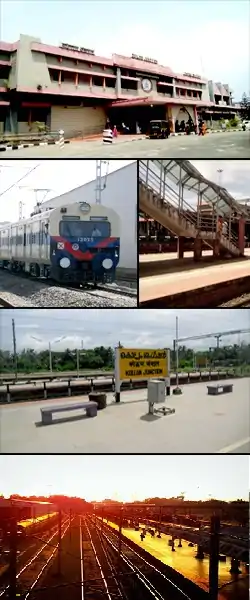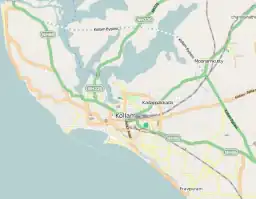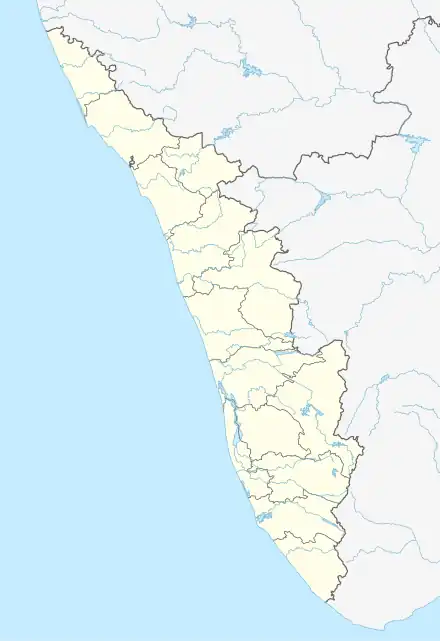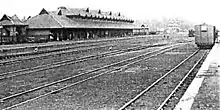Kollam Junction കൊല്ലം ജംഗ്ഷൻ | |||||||||||||||||||||||||||||||||||||||||||||||||||||||||||||||||||||||||||||||||||||||||||||||||||||||||||||||||||||||||||||||||||||||||||||||||||||||||||||||||||||||||||||||||||||||||||||||||||||||||||||||||||||||||||||||||||||||||||||||
|---|---|---|---|---|---|---|---|---|---|---|---|---|---|---|---|---|---|---|---|---|---|---|---|---|---|---|---|---|---|---|---|---|---|---|---|---|---|---|---|---|---|---|---|---|---|---|---|---|---|---|---|---|---|---|---|---|---|---|---|---|---|---|---|---|---|---|---|---|---|---|---|---|---|---|---|---|---|---|---|---|---|---|---|---|---|---|---|---|---|---|---|---|---|---|---|---|---|---|---|---|---|---|---|---|---|---|---|---|---|---|---|---|---|---|---|---|---|---|---|---|---|---|---|---|---|---|---|---|---|---|---|---|---|---|---|---|---|---|---|---|---|---|---|---|---|---|---|---|---|---|---|---|---|---|---|---|---|---|---|---|---|---|---|---|---|---|---|---|---|---|---|---|---|---|---|---|---|---|---|---|---|---|---|---|---|---|---|---|---|---|---|---|---|---|---|---|---|---|---|---|---|---|---|---|---|---|---|---|---|---|---|---|---|---|---|---|---|---|---|---|---|---|---|---|---|---|---|---|---|---|---|---|---|---|---|---|---|---|---|
 From Top: Entrance of Kollam Junction Railway Station, A MEMU train at Kollam railway station, foot overbridge, name board of the station, Kollam MEMU Shed building | |||||||||||||||||||||||||||||||||||||||||||||||||||||||||||||||||||||||||||||||||||||||||||||||||||||||||||||||||||||||||||||||||||||||||||||||||||||||||||||||||||||||||||||||||||||||||||||||||||||||||||||||||||||||||||||||||||||||||||||||
| General information | |||||||||||||||||||||||||||||||||||||||||||||||||||||||||||||||||||||||||||||||||||||||||||||||||||||||||||||||||||||||||||||||||||||||||||||||||||||||||||||||||||||||||||||||||||||||||||||||||||||||||||||||||||||||||||||||||||||||||||||||
| Other names | Quilon Junction | ||||||||||||||||||||||||||||||||||||||||||||||||||||||||||||||||||||||||||||||||||||||||||||||||||||||||||||||||||||||||||||||||||||||||||||||||||||||||||||||||||||||||||||||||||||||||||||||||||||||||||||||||||||||||||||||||||||||||||||||
| Location | Kollam, Kollam District, Kerala India | ||||||||||||||||||||||||||||||||||||||||||||||||||||||||||||||||||||||||||||||||||||||||||||||||||||||||||||||||||||||||||||||||||||||||||||||||||||||||||||||||||||||||||||||||||||||||||||||||||||||||||||||||||||||||||||||||||||||||||||||
| Coordinates | 8°53′10″N 76°35′42″E / 8.8860°N 76.5951°E | ||||||||||||||||||||||||||||||||||||||||||||||||||||||||||||||||||||||||||||||||||||||||||||||||||||||||||||||||||||||||||||||||||||||||||||||||||||||||||||||||||||||||||||||||||||||||||||||||||||||||||||||||||||||||||||||||||||||||||||||
| Elevation | 6.74 metres (22.1 ft) | ||||||||||||||||||||||||||||||||||||||||||||||||||||||||||||||||||||||||||||||||||||||||||||||||||||||||||||||||||||||||||||||||||||||||||||||||||||||||||||||||||||||||||||||||||||||||||||||||||||||||||||||||||||||||||||||||||||||||||||||
| Owned by | Indian Railways | ||||||||||||||||||||||||||||||||||||||||||||||||||||||||||||||||||||||||||||||||||||||||||||||||||||||||||||||||||||||||||||||||||||||||||||||||||||||||||||||||||||||||||||||||||||||||||||||||||||||||||||||||||||||||||||||||||||||||||||||
| Operated by | Southern Railway zone | ||||||||||||||||||||||||||||||||||||||||||||||||||||||||||||||||||||||||||||||||||||||||||||||||||||||||||||||||||||||||||||||||||||||||||||||||||||||||||||||||||||||||||||||||||||||||||||||||||||||||||||||||||||||||||||||||||||||||||||||
| Line(s) | QLN–TVC QLN–ERS (via ALLP and KTYM) QLN–SCT (via PUU) | ||||||||||||||||||||||||||||||||||||||||||||||||||||||||||||||||||||||||||||||||||||||||||||||||||||||||||||||||||||||||||||||||||||||||||||||||||||||||||||||||||||||||||||||||||||||||||||||||||||||||||||||||||||||||||||||||||||||||||||||
| Platforms | 6 (1A,1,2,3,4,5) | ||||||||||||||||||||||||||||||||||||||||||||||||||||||||||||||||||||||||||||||||||||||||||||||||||||||||||||||||||||||||||||||||||||||||||||||||||||||||||||||||||||||||||||||||||||||||||||||||||||||||||||||||||||||||||||||||||||||||||||||
| Tracks | 17 | ||||||||||||||||||||||||||||||||||||||||||||||||||||||||||||||||||||||||||||||||||||||||||||||||||||||||||||||||||||||||||||||||||||||||||||||||||||||||||||||||||||||||||||||||||||||||||||||||||||||||||||||||||||||||||||||||||||||||||||||
| Connections | |||||||||||||||||||||||||||||||||||||||||||||||||||||||||||||||||||||||||||||||||||||||||||||||||||||||||||||||||||||||||||||||||||||||||||||||||||||||||||||||||||||||||||||||||||||||||||||||||||||||||||||||||||||||||||||||||||||||||||||||
| Construction | |||||||||||||||||||||||||||||||||||||||||||||||||||||||||||||||||||||||||||||||||||||||||||||||||||||||||||||||||||||||||||||||||||||||||||||||||||||||||||||||||||||||||||||||||||||||||||||||||||||||||||||||||||||||||||||||||||||||||||||||
| Structure type | Standard (on-ground station) | ||||||||||||||||||||||||||||||||||||||||||||||||||||||||||||||||||||||||||||||||||||||||||||||||||||||||||||||||||||||||||||||||||||||||||||||||||||||||||||||||||||||||||||||||||||||||||||||||||||||||||||||||||||||||||||||||||||||||||||||
| Platform levels | 01 | ||||||||||||||||||||||||||||||||||||||||||||||||||||||||||||||||||||||||||||||||||||||||||||||||||||||||||||||||||||||||||||||||||||||||||||||||||||||||||||||||||||||||||||||||||||||||||||||||||||||||||||||||||||||||||||||||||||||||||||||
| Parking | |||||||||||||||||||||||||||||||||||||||||||||||||||||||||||||||||||||||||||||||||||||||||||||||||||||||||||||||||||||||||||||||||||||||||||||||||||||||||||||||||||||||||||||||||||||||||||||||||||||||||||||||||||||||||||||||||||||||||||||||
| Bicycle facilities | |||||||||||||||||||||||||||||||||||||||||||||||||||||||||||||||||||||||||||||||||||||||||||||||||||||||||||||||||||||||||||||||||||||||||||||||||||||||||||||||||||||||||||||||||||||||||||||||||||||||||||||||||||||||||||||||||||||||||||||||
| Accessible | |||||||||||||||||||||||||||||||||||||||||||||||||||||||||||||||||||||||||||||||||||||||||||||||||||||||||||||||||||||||||||||||||||||||||||||||||||||||||||||||||||||||||||||||||||||||||||||||||||||||||||||||||||||||||||||||||||||||||||||||
| Other information | |||||||||||||||||||||||||||||||||||||||||||||||||||||||||||||||||||||||||||||||||||||||||||||||||||||||||||||||||||||||||||||||||||||||||||||||||||||||||||||||||||||||||||||||||||||||||||||||||||||||||||||||||||||||||||||||||||||||||||||||
| Status | Functioning | ||||||||||||||||||||||||||||||||||||||||||||||||||||||||||||||||||||||||||||||||||||||||||||||||||||||||||||||||||||||||||||||||||||||||||||||||||||||||||||||||||||||||||||||||||||||||||||||||||||||||||||||||||||||||||||||||||||||||||||||
| Station code | QLN | ||||||||||||||||||||||||||||||||||||||||||||||||||||||||||||||||||||||||||||||||||||||||||||||||||||||||||||||||||||||||||||||||||||||||||||||||||||||||||||||||||||||||||||||||||||||||||||||||||||||||||||||||||||||||||||||||||||||||||||||
| Zone(s) | Southern Railway zone | ||||||||||||||||||||||||||||||||||||||||||||||||||||||||||||||||||||||||||||||||||||||||||||||||||||||||||||||||||||||||||||||||||||||||||||||||||||||||||||||||||||||||||||||||||||||||||||||||||||||||||||||||||||||||||||||||||||||||||||||
| Division(s) | Thiruvananthapuram | ||||||||||||||||||||||||||||||||||||||||||||||||||||||||||||||||||||||||||||||||||||||||||||||||||||||||||||||||||||||||||||||||||||||||||||||||||||||||||||||||||||||||||||||||||||||||||||||||||||||||||||||||||||||||||||||||||||||||||||||
| Classification | NSG-3 | ||||||||||||||||||||||||||||||||||||||||||||||||||||||||||||||||||||||||||||||||||||||||||||||||||||||||||||||||||||||||||||||||||||||||||||||||||||||||||||||||||||||||||||||||||||||||||||||||||||||||||||||||||||||||||||||||||||||||||||||
| History | |||||||||||||||||||||||||||||||||||||||||||||||||||||||||||||||||||||||||||||||||||||||||||||||||||||||||||||||||||||||||||||||||||||||||||||||||||||||||||||||||||||||||||||||||||||||||||||||||||||||||||||||||||||||||||||||||||||||||||||||
| Opened | June 1, 1904 | ||||||||||||||||||||||||||||||||||||||||||||||||||||||||||||||||||||||||||||||||||||||||||||||||||||||||||||||||||||||||||||||||||||||||||||||||||||||||||||||||||||||||||||||||||||||||||||||||||||||||||||||||||||||||||||||||||||||||||||||
| Electrified | 2001 25 kV AC 50 Hz | ||||||||||||||||||||||||||||||||||||||||||||||||||||||||||||||||||||||||||||||||||||||||||||||||||||||||||||||||||||||||||||||||||||||||||||||||||||||||||||||||||||||||||||||||||||||||||||||||||||||||||||||||||||||||||||||||||||||||||||||
| Previous names | Quilon Junction railway station | ||||||||||||||||||||||||||||||||||||||||||||||||||||||||||||||||||||||||||||||||||||||||||||||||||||||||||||||||||||||||||||||||||||||||||||||||||||||||||||||||||||||||||||||||||||||||||||||||||||||||||||||||||||||||||||||||||||||||||||||
| Key dates | |||||||||||||||||||||||||||||||||||||||||||||||||||||||||||||||||||||||||||||||||||||||||||||||||||||||||||||||||||||||||||||||||||||||||||||||||||||||||||||||||||||||||||||||||||||||||||||||||||||||||||||||||||||||||||||||||||||||||||||||
| 1902:- 1 Jun 1904:- 1 Jan 1918:- 6 Jan 1958:- 23 Nov 1975:- 2001:- 10 May 2010:- 1 Dec 2013:- 2 Mar 2019 | Goods trains service started Station with MG line opened Quilon–Chala service started Became a Junction railway station BG services to Ernakulam started Line electrification completed Kollam–Punalur BG line opened Kollam MEMU Shed opened Terminal-2 opened | ||||||||||||||||||||||||||||||||||||||||||||||||||||||||||||||||||||||||||||||||||||||||||||||||||||||||||||||||||||||||||||||||||||||||||||||||||||||||||||||||||||||||||||||||||||||||||||||||||||||||||||||||||||||||||||||||||||||||||||||
| Passengers | |||||||||||||||||||||||||||||||||||||||||||||||||||||||||||||||||||||||||||||||||||||||||||||||||||||||||||||||||||||||||||||||||||||||||||||||||||||||||||||||||||||||||||||||||||||||||||||||||||||||||||||||||||||||||||||||||||||||||||||||
| 2018–19 | 23,479 per day[1] | ||||||||||||||||||||||||||||||||||||||||||||||||||||||||||||||||||||||||||||||||||||||||||||||||||||||||||||||||||||||||||||||||||||||||||||||||||||||||||||||||||||||||||||||||||||||||||||||||||||||||||||||||||||||||||||||||||||||||||||||
| Rank | 4 (in Kerala) 3 (in Trivandrum division) | ||||||||||||||||||||||||||||||||||||||||||||||||||||||||||||||||||||||||||||||||||||||||||||||||||||||||||||||||||||||||||||||||||||||||||||||||||||||||||||||||||||||||||||||||||||||||||||||||||||||||||||||||||||||||||||||||||||||||||||||
| Services | |||||||||||||||||||||||||||||||||||||||||||||||||||||||||||||||||||||||||||||||||||||||||||||||||||||||||||||||||||||||||||||||||||||||||||||||||||||||||||||||||||||||||||||||||||||||||||||||||||||||||||||||||||||||||||||||||||||||||||||||
| |||||||||||||||||||||||||||||||||||||||||||||||||||||||||||||||||||||||||||||||||||||||||||||||||||||||||||||||||||||||||||||||||||||||||||||||||||||||||||||||||||||||||||||||||||||||||||||||||||||||||||||||||||||||||||||||||||||||||||||||
| |||||||||||||||||||||||||||||||||||||||||||||||||||||||||||||||||||||||||||||||||||||||||||||||||||||||||||||||||||||||||||||||||||||||||||||||||||||||||||||||||||||||||||||||||||||||||||||||||||||||||||||||||||||||||||||||||||||||||||||||
| Location | |||||||||||||||||||||||||||||||||||||||||||||||||||||||||||||||||||||||||||||||||||||||||||||||||||||||||||||||||||||||||||||||||||||||||||||||||||||||||||||||||||||||||||||||||||||||||||||||||||||||||||||||||||||||||||||||||||||||||||||||
 Kollam Junction railway station Location within Kollam  Kollam Junction railway station Kollam Junction railway station (Kerala)  Kollam Junction railway station Kollam Junction railway station (India) | |||||||||||||||||||||||||||||||||||||||||||||||||||||||||||||||||||||||||||||||||||||||||||||||||||||||||||||||||||||||||||||||||||||||||||||||||||||||||||||||||||||||||||||||||||||||||||||||||||||||||||||||||||||||||||||||||||||||||||||||
| Interactive map | |||||||||||||||||||||||||||||||||||||||||||||||||||||||||||||||||||||||||||||||||||||||||||||||||||||||||||||||||||||||||||||||||||||||||||||||||||||||||||||||||||||||||||||||||||||||||||||||||||||||||||||||||||||||||||||||||||||||||||||||
Kollam Junction railway station (station code: QLN) is a junction station situated in the city of Kollam in Kerala, India. It is the second largest railway station in Kerala in terms of area and largest in terms of number of tracks and one of the oldest railway stations in the state. It is also the second busiest railway station in Kerala in terms of trains handled per day. World's third longest railway platform is situated at Kollam railway station.[2][3][4]
Kollam Junction lies on Kollam–Thiruvananthapuram trunk line. It is operated by the Southern Railway zone of the Indian Railways and comes under the Thiruvananthapuram railway division. The annual passenger ticket revenue of Kollam railway station is ₹64.23 crore (equivalent to ₹90 crore or US$11 million in 2023) and 23,048 is the daily ridership through this station.[5] It is one among the few railway stations in Kerala having two terminals with ticket counter facility. Three express trains have been originating from Kollam Junction railway station to South Indian cities of Chennai and Visakhapatnam: Visakhapatnam–Kollam Express (weekly),[6] Anantapuri Express (daily)[7] and Chennai Egmore–Kollam Junction Express (daily).[8]
History

Kollam was the fifth city in Kerala to be connected to the nascent Indian Railways. The idea of a rail link from Chennai to Kollam, then the trading capital of the Travancore Kingdom was first conceived in 1873. The line was sanctioned by the Madras Presidency in 1899 and a survey completed in 1900. The railway line was built jointly by South Indian railway, Travancore state and the Madras Presidency. Kollam's (Anglicized Quilon) railway station was built in 1904 by Sree Moolam Tirunal Rama Varma, Maharaja of Travancore. It was the ruler's desire to create a rail link between Quilon, the then commercial capital of his State and Madras.[9] The metre-gauge line from Quilon to Punalur was inaugurated on 1 June 1904. The Quilon-Sengottai railway line was inaugurated on 26 November 1904. The meter gauge line was later extended to Chala at Trivandrum via Paravur and Varkala and inaugurated on 4 January 1918[10] Fund allotted for the extension of meter gauge railway line from Quilon to Ernakulam via Kottayam on 1952 and is inaugurated on 6 January 1958.[11][12] The metre-gauge lines between Kollam and Ernakulam were converted to broad gauge in 1975 and inaugurated on 13 September 1976. The broad gauge conversion between the Punalur and Quilon sections was inaugurated on 12 May 2010.
There was once a 2.4 kilometres (1.5 mi) metre-gauge line connecting Quilon Junction and Ashramam Maidan. During the inauguration of the Kollam-Punalur metre-gauge line in 1904, parts of locomotives which were to be used for Quilon–Schencottah line were shipped to Quilon Port from Tuticorin Port. They were assembled at the Ashramam Maidan, which was an open ground. The line was laid to carry these locomotives to the main station. The line was dismantled in 2000 to allow for city expansion. There was also a turntable in Kollam Junction railway station till 2015. Indian Railways removed it to pave way for the developments related to MEMU Shed.[13]
Layout
There are a total of 17 tracks in the Kollam railway station, 2 lines are passing through the MEMU shed. The station has 6 platforms for handling long distance, passenger, MEMU & goods trains. The platform 1 is divided into two sections. Platform 1A handles the trains to Punalur–Sengottai line and platform 1 handles trains towards Trivandrum Central. The platform 1 and 1A together have a length of 1,180.5 m making them together the third longest railway platform in India.[14] The station has an MEMU shed which is situated near to Platform 1A. An FCI godown owned and operated by Food Corporation of India is also situated near Kollam junction.
| Railways in Kerala cities |
|---|
 |
Location
Surrounding transport hubs:
- Nearest bus stations Andamukkam City bus stand (1.2 km) and Kollam KSRTC Bus Station (2 km)
- Nearest sea port: Kollam Port (3 km)
- Nearest ferry terminal: Kollam KSWTD Ferry Terminal (2 km)
- Nearest airport: Trivandrum International Airport (67 km) and Kollam Helipad (Old Airport) (0.5 km)
Annual passenger earnings
The annual passenger earnings from Kollam railway station shows a steady growth for several decades.[15]
| Year | Earnings (in crores) |
Variation |
|---|---|---|
| 2011–12 | ₹38.2105 crore (US$4.8 million) | NA |
| 2012–13 | ₹43.8898 crore (US$5.5 million) | |
| 2013–14 | ₹49.5695 crore (US$6.2 million) | |
| 2014–15 | ₹56.2797 crore (US$7.0 million) | |
| 2015–16 | ₹60.4467 crore (US$7.6 million) | |
| 2016–17 | ₹60.7804 crore (US$7.6 million) | |
| 2017–18 | ₹64.2310 crore (US$8.0 million) | |
| 2018–19 | ₹67.4538 crore (US$8.4 million) | |
| 2019–20 | ₹68.2169 crore (US$8.5 million) | |
| 2020–21 | ₹13.5656 crore (US$1.7 million) | |
| 2021–22 | ₹43.3557 crore (US$5.4 million) | |
| 2022–23 | ₹84.8381 crore (US$11 million) |
MEMU Shed
Kollam MEMU Shed is constructed at a cost of ₹40.68 crore (US$5.1 million), for Mainline Electric Multiple Unit (MEMU) rakes. It was formally commissioned on 1 December 2013, five years after its completion.[23] Now the railways is operating three pairs of Kollam–Ernakulam (via Alappuzha and Kottayam)[24] via both the routes and a Kollam–Kanyakumari[25] (via Trivandrum, Nagercoil) & Kollam - Punalur services from Kollam. Kollam MEMU Shed is the largest MEMU Shed in Kerala, which is equipped with most modern facilities.
Services
There are three express train services originating from Kollam Junction, viz., Kollam–Visakhapatnam Express,[26] Anantapuri Express and Kollam Junction–Chennai Egmore Express. The services connect Chennai Egmore and Visakhapatnam cities with Kollam.[27]
Future
Kollam Junction is one among the 25 stations in the country selected for first phase redevelopment at international standards along with Ernakulam Junction and Ernakulam Town stations.
The modernization works of the old terminal including works for lifts, escalators, new air conditioned waiting area etc. have been initiated in the railway station but not yet completed.[28][29]
- Google's High-speed Wi-Fi service
Kollam is among the first 100 railway stations in India selected for providing high-speed Wi-Fi services by Google, named as ‘Project Nilgiri’. There are 5 railway stations from Kerala in the initial stage.[30][31][32][33][34] The service inaugurated at Kollam station on 26 December 2016 by Suresh Prabhu, Railway Minister of India, through video conferencing.[35][36][37][38][39]
- Kollam Junction to get modernization of international standards
On 18 September 2019, Indian Railways assured the modernization of Kollam Junction railway station to international standards. Kollam is one of the five railway stations in Kerala to be modernized.[40]
Other suburban railway stations nearby



| No. | Station | Code | Area | Distance from Kollam Jn. |
|---|---|---|---|---|
| 1 | Perinad | PRND | North Kollam | 9.1 km |
| 2 | Munroturuttu | MQO | North Kollam | 14.1 km |
| 3 | Kilikollur | KLQ | East Kollam | 5.6 km |
| 4 | Chandanathoppe | CTPE | East Kollam | 7.3 km |
| 5 | Kundara | KUV | East Kollam | 12.7 km |
| 6 | Eravipuram | IRP | South Kollam | 4.6 km |
| 7 | Mayyanad | MYY | South Kollam | 8.9 km |
| 8 | Paravur | PVU | South Kollam | 12.4 km |
Incidents
- The engine of 56307 passenger derailed on 6 July 2018.[41]
- The engine of 16723 Express caught fire at Kollam Junction on 16 July 2018.
See also
References
- ↑ "Annual originating passengers and earnings for the year 2019-20 – Thiruvananthapuram Division" (PDF). Indian Railways. Retrieved 18 January 2021.
- ↑ "At a glance: Longest railway platforms in India". Railnewscenter. Archived from the original on 25 February 2015. Retrieved 25 February 2015.
- ↑ "The Top 6 Longest Railway Platforms of India". Walk through India. Retrieved 25 February 2015.
- ↑ "West Bengal: tea plantations and other Raj-era relics". 2 November 2014. Retrieved 21 December 2018.
- ↑ "Annual originating passengers and earnings for the year 2017–18 – Thiruvananthapuram Division" (PDF). Indian Railways. Retrieved 11 September 2018.
- ↑ "Timings of new trains announced". The Hindu. Retrieved 22 October 2018.
- ↑ "Engine of Ananthapuri Express catches fire at Kollam station". Times of India. 17 July 2018. Retrieved 22 October 2018.
- ↑ "After 19 years, Chennai–Kollam regular train service to resume from Monday". The New Indian Express. 3 March 2019. Retrieved 3 March 2019.
- ↑ "A station of yore, its golden links". The Hindu. Kollam. 16 November 2012. Retrieved 21 December 2018.
- ↑ "Railways cross a milestone". The Hindu. 12 April 2010. Archived from the original on 1 May 2010. Retrieved 21 December 2018.
- ↑ "Parliamentary Debates" (PDF). eparlib.nic.in. 2 June 1952. Retrieved 4 November 2019.
- ↑ "Parliamentary Debates" (PDF). eparlib.nic.in. New Delhi. 9 June 1952. Retrieved 25 November 2019.
- ↑ "Quilon – IRFCA". Retrieved 31 October 2019.
- ↑ "West Bengal: Tea Plantations and Other Raj-Era Relics". The Independent. Retrieved 6 June 2019.
- ↑ "Station Redevelopment Plan – Kollam Junction". Indian Railways. Retrieved 10 July 2017.
- ↑ "Stations Profile 2017 – Thiruvananthapuram Division" (PDF). Indian Railways. Retrieved 14 March 2018.
- ↑ "RTI reply about Annual Passenger Ticket Revnue 2015–16 : Kollam Junction". Indian Railways. Retrieved 10 July 2017.
- ↑ "Annual originating passengers and earnings for the year 2017–18 – Thiruvananthapuram Division" (PDF). Indian Railways. Retrieved 11 September 2018.
- ↑ "Annual originating passengers and earnings for the year 2018–19 – Thiruvananthapuram Division" (PDF). Indian Railways. Retrieved 6 June 2019.
- ↑ "Annual originating passengers & earnings for the year 2019-20" (PDF). Retrieved 18 January 2021.
- ↑ "Annual originating passengers & earnings for the year 2020-21" (PDF). Retrieved 30 August 2021.
- ↑ "Annual originating passengers & earnings for the year 2022-23" (PDF). Retrieved 18 September 2023.
- ↑ MEMU Maintenance Work Begins in Kollam Kollam MEMU Shed
- ↑ MEMU service flagged off Kollam-Ernakulam MEMU
- ↑ MEMU service flagged off in Kollam Kollam-Kanyakumari MEMU Archived 20 March 2014 at the Wayback Machine
- ↑ "Timings of new trains announced". The Hindu. Retrieved 12 March 2019.
- ↑ "After 19 years, Chennai–Kollam regular train service to resume from Monday". The New Indian Express. 3 March 2019. Retrieved 12 March 2019.
- ↑ "Kollam second terminal by October". The Hindu. Kollam. 31 May 2018. Retrieved 1 June 2018.
- ↑ "New entry for rail station". Retrieved 12 February 2016.
- ↑ "These 5 Railway stations in Kerala will first get Google's Wi-Fi! Is your city among the list?". Retrieved 9 October 2015.
- ↑ "Experience high speed Wi-Fi at Trivandrum Central railway station". 30 October 2016. Retrieved 31 October 2016.
- ↑ "Central station is Wi-Fi hotspot now – The Hindu". 29 October 2016. Retrieved 31 October 2016.
- ↑ "Surf the rail net for free from Thiruvananthapuram statio". The New Indian Express. 29 October 2016. Retrieved 31 October 2016.
- ↑ "Wi-Fi in three more Kerala railway stations soon – The Hindu". 27 April 2016. Retrieved 31 October 2016.
- ↑ "Free Wi-Fi service at 100 railway stations, Kollam latest to be enabled". 27 December 2016. Retrieved 27 December 2016.
- ↑ "Railway WiFi: 100 stations now WiFi enabled, another 300 planned for 2017". 27 December 2016. Retrieved 27 December 2016.
- ↑ "Free Wi-Fi service at 100 railway stations". The dayafter. 27 December 2016. Retrieved 28 December 2016.
- ↑ "Free Wi-Fi service at 100 railway stations, including Kollam". Mathrubhumi. 27 December 2016. Retrieved 28 December 2016.
- ↑ "Free Wi-Fi service now available at 100 railway stations across India, 400 stations to be covered next year". Economic Times. 27 December 2016. Retrieved 28 December 2016.
- ↑ "Railway rejects Kerala's demands; no extra trains, no extension of services". English Mathrubhumi. 19 September 2019. Retrieved 19 September 2019.
- ↑ "TVM-Kollam passenger train derails, no casualties". 6 July 2018. Retrieved 21 December 2018.